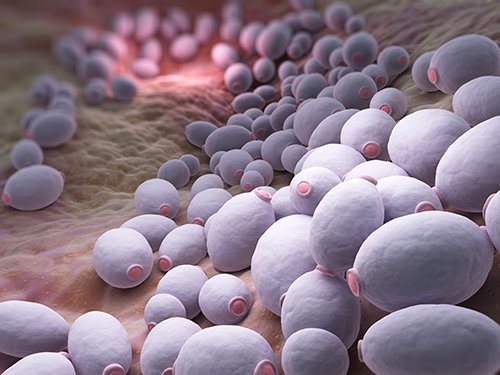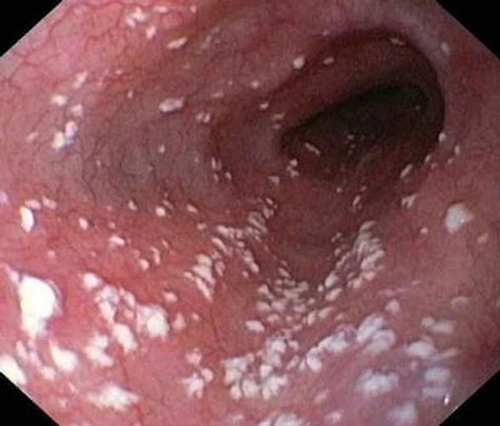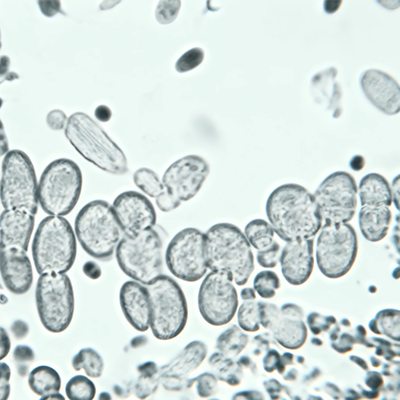The human body is naturally equipped with diverse microorganisms, including bacteria and fungi, that help maintain a healthy balance. However, when the delicate balance is disrupted, an overgrowth of a form of yeast called Candida albicans can occur, causing uncomfortable and sometimes severe symptoms. Fortunately, natural remedies can reduce the symptoms and restore the body’s balance.
Natural Remedies for Candida Overgrowth

Candida overgrowth is a common problem for many people. Left untreated, it can cause various uncomfortable symptoms such as fatigue, brain fog, digestive issues, and skin problems. Fortunately, several natural remedies for candida can help to reduce the overgrowth.
The first step in treating Candida overgrowth is to consume probiotic-rich foods, such as yogurt, sauerkraut, and kefir. Adding garlic to your diet can also be beneficial, as it has natural antifungal properties that can help to fight Candida overgrowth. Additionally, increasing your intake of fermented vegetables, such as kimchi and pickles, can help reduce growth.
Avoiding sugary foods, refined carbohydrates, and processed meats when managing candida is essential. Instead, focus on consuming many fresh fruits, vegetables, and lean proteins and take a good-quality probiotic supplement.
Drink ample amounts of water and avoid alcohol and caffeine. You should also limit your intake of sugar and artificial sweeteners and increase your intake of foods high in fiber, such as legumes, nuts, and seeds.
Finally, adding antifungal herbs, such as oregano and thyme, and essential oils, like oregano, tea tree, and lavender, can help fight overgrowth. You can reduce candida and regain health and vitality with the right combination of dietary changes, probiotics, and herbs.
Causes of Candida Overgrowth
Poor Diet: Many people are unaware that eating a diet high in refined carbohydrates, sugar, and processed foods can result in an overgrowth of candida. A diet low in sugar and whole, unprocessed foods is essential for controlling this condition.
Antibiotic Use: Antibiotics can be lifesaving in many cases, but they can also disrupt the average balance of bacteria in the gut, allowing candida to overgrow. If antibiotics are necessary, it’s essential to take probiotics and eat a healthy diet while taking them to help restore the balance of bacteria in the gut.
Stress: High stress levels can weaken the immune system, making it easier for candida to overgrow. Practicing stress-relieving activities such as yoga and meditation is crucial to help keep candida in check.
Birth Control Pills: The hormones in these pills can upset the stability of bacteria in the gut, leading to Candida overgrowth. If taking birth control pills is necessary, taking probiotics, eating a healthy diet, and practicing stress-relieving activities help keep candida in check.
Diabetes: High sugar levels in the blood can lead to an overgrowth of candida. If you have diabetes, keeping your blood sugar levels in check is essential to help prevent an overgrowth of candida.
Poor Gut Health: Poor gut health can make it easier for candida to prosper. Eating fiber, probiotics, and exercising regularly can help improve gut health and prevent candida from overtaking the system.
Weak Immune System: A diminished immune system can make it easier for candida to overgrow. Eating a healthy diet, getting enough sleep, and reducing stress can help support a robust immune system, which means that candida cannot gain the upper hand.
Symptoms of a Candida Overgrowth
Common symptoms of candida overgrowth include:
- chronic fatigue
- brain fog
- digestive issues
- skin and nail fungal infections
- recurring yeast infections
- sugar cravings
- mood swings
- poor immune system
- joint pain
- excessive gas
- bloating
- abdominal pain
- bad breath.

Fortunately, several natural remedies can help restore body balance and reduce the symptoms of candida overgrowth. One of the most effective strategies is to reduce sugar and refined carbohydrates from the diet, as these can feed candida overgrowth. Additionally, probiotics can be beneficial as they help to reestablish the balance of healthy bacteria in the gut, which can help reduce candida growth.
In addition to dietary changes, herbal remedies can help reduce the symptoms of candida overgrowth. Some of the most effective herbs include oregano, garlic, and ginger. Oregano is antifungal, garlic has strong antimicrobial properties, and ginger helps to improve digestion and reduce bloating.
Finally, supplementing with caprylic acid, a fatty acid found in coconut oil, can help reduce candida’s growth by disrupting its cell membrane.
Overall, candida overgrowth can cause a range of unpleasant symptoms, but many natural remedies can help restore balance to the body and reduce the symptoms. Making dietary changes, using herbal remedies, and supplementing with caprylic acid can reduce candida overgrowth symptoms.
Are There Any Dietary Changes I Can Make to Help Treat Candida
The most important part of managing candida is diet. Choose a diet high in vegetables, fruits, and whole grains. Eating fermented foods like sauerkraut, pickles, miso, and tempeh can help to increase beneficial bacteria in the gut.
Incorporating healthy fats into your diet, like avocados, nuts, and seeds, is also essential. Increasing fiber intake by consuming chia seeds, flaxseed, and hemp seeds can also help to reduce symptoms.
Other dietary changes may help include avoiding refined carbohydrates, alcohol, and caffeine. Drinking heaps of water and herbal teas can help keep you hydrated. You may also consider taking a probiotic or antifungal supplement to help regulate the balance of beneficial bacteria in the gut.
These lifestyle and dietary changes can help reduce candida symptoms and manage the infection. However, if symptoms persist, speaking to a doctor or healthcare professional is crucial.
How Can I Identify If I Have an Overgrowth of Candida
If you feel exhausted, have digestive issues, are foggy, or have skin problems, you may be dealing with candida overgrowth. Additionally, look for signs of thrush, a white coating on the tongue, throat, and/or mouth, as this can signify an overgrowth. Another sign of candida is a white or yellow discoloration of the nails. If you’re experiencing any of the symptoms mentioned above, getting tested by your doctor for candida infection is a good idea.
Are There Any Modifications I Can Make to Prevent Candida
Eating a balanced diet is one of the best ways to lessen your risk of Candida overgrowth. Avoiding processed foods and refined sugars, eating plenty of fresh fruits and vegetables, and including lean meats, nuts, and whole grains can help keep your gut healthy and immune system robust. Probiotic-rich foods such as yogurt, kefir, sauerkraut, kimchi, and kombucha can help restore your gut microbiome and prevent Candida overgrowth.
Alcohol and caffeine can also interfere with your gut microbiome, so eliminating them from your diet can help lower your risk. Additionally, antifungal supplements such as oregano oil, garlic, and caprylic acid can help to kill off candida naturally. Lastly, reducing stress levels can help keep your gut healthy and minimize the risk of overgrowth.
When to Contact a Doctor

It is crucial to be aware of the potential risks associated with using natural remedies and to be sure to consult a healthcare professional if any of the following occur:
If your symptoms don’t improve after trying natural remedies for candida, if your symptoms worsen despite trying natural remedies for candida, or if you experience any new symptoms while using natural remedies for candida, it is vital to seek medical advice.
Additionally, suppose you have concerns about the safety or efficacy of the natural remedies for candida. In that case, if you’re using or if you’re experiencing any severe side effects from the natural medications for candida you’re using, it is crucial to seek medical advice as soon as possible.
Finally, suppose you have any underlying medical conditions that might interfere with the natural remedies for candida you’re using. In that case, discussing this with your healthcare provider before starting any natural treatment is essential.
By being aware of the potential risks associated with natural remedies for candida, you can ensure you’re taking the appropriate steps to ensure your safety and the efficacy of the treatment.
DISCLAIMER: All content on this website is presented solely for educational and informational objectives. Do not rely on the information provided as a replacement for advice, diagnosis, or treatment from a qualified medical expert. If you are pregnant, nursing, or have any preexisting medical concerns, talk to your doctor before using any herbal or natural medicines.
References
- Oregano Oil:
- Study: Leyva-López N, Gutiérrez-Grijalva EP, Vázquez-Olivo G, Heredia JB. Essential Oils of Oregano: Biological Activity Beyond Their Antimicrobial Properties. Molecules. 2017 Jun 27;22(7):1031. doi: 10.3390/molecules22071031. PMID: 28661163; PMCID: PMC6152744. [Natural remedies for candida]
- Source: VeryWell Health: https://www.verywellhealth.com/natural-remedies-for-candida-88223
- Coconut Oil:
- Study: Ogbolu DO, Oni AA, Daini OA, Oloko AP. In vitro antimicrobial properties of coconut oil on Candida species in Ibadan, Nigeria. J Med Food. 2007 Jun;10(2):384-7. doi: 10.1089/jmf.2005.057. PMID: 17651080.
- Garlic:
- Study: Aala F, Yusuf UK, Adesokan AA, Adebajo AC, Oloyede OB. In vitro antifungal activity of ajoene on clinical isolates of Candida albicans from HIV-seropositive patients with oropharyngeal candidiasis. Phytother Res. 2008 Oct;22(10):1386-90. doi: 10.1002/ptr.2493. PMID: 18698641.
- Probiotics:
- Study: Homayouni A, Bastani P, Ziyadi S, Mohammad-Alizadeh-Charandabi S, Ghalibaf M, Mortazavian AM, Mehrabany EV. Effects of probiotics on the recurrence of bacterial vaginosis: a review. J Low Genit Tract Dis. 2014 Jan;18(1):79-86. doi: 10.1097/LGT.0b013e3182a1835d. PMID: 24398522.
- Tea Tree Oil:
- Study: Hammer KA, Carson CF, Riley TV. Antifungal activity of the components of Melaleuca alternifolia (tea tree) oil. J Appl Microbiol. 2006 Feb;100(2):417-23. doi: 10.1111/j.1365-2672.2005.02721.x. PMID: 16492290.
- Herbs:
- Source: Examine.com: https://examine.com/ (General information on herbs and their properties)
- Dietary Changes:
- Source: VeryWell Health: https://www.verywellhealth.com/natural-remedies-for-candida-88223
- Boric Acid:
- Apple Cider Vinegar:
- Study: Motamedi M, Hashemi SJ, Talebi M, Craig JP, Rezadoost H. In vitro antifungal activity of apple cider vinegar against Candida species involved in vulvovaginal candidiasis. Jundishapur J Microbiol. 2018 Apr;11(4):e63068. doi: 10.5812/jjm.63068. PMID: 30050707; PMCID: PMC6032438.
